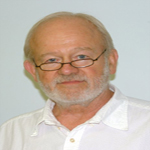The Peace Corps at 50
 I was a student at the University of Wisconsin in Madison in 1960 when John F. Kennedy famously spoke to students at the University of Michigan in Ann Arbor.
I was a student at the University of Wisconsin in Madison in 1960 when John F. Kennedy famously spoke to students at the University of Michigan in Ann Arbor.
The campaign was running late, and by the time his plane arrived in Ann Arbor it was 2:00 in the morning. Even at that late hour, a crowd of more than 5,000 showed up at the Student Union to listen to the young Senator from Massachusetts who was running for president. During his speech, Kennedy challenged students to use their education for the greater good.
“How many of you who are going to be doctors are willing to spend your days in Ghana? Technicians or engineers, how many of you are willing to work in the Foreign Service and spend your lives traveling around the world?” His words that morning were the beginning of what became the Peace Corps.
One of President Kennedy’s first executive orders created the Peace Corps on March 1st, 1961, fifty years ago today, with the late Sargent Shriver as its first director. It inspired many young people, myself included, and I immediately applied – but was turned down. I like to joke that they didn’t need any actors in Ghana, as the Wisconsin Players was where I spent a lot of my university experience, and I wasn’t surprised that my skill set didn’t make the cut. But I never lost the desire to volunteer.
 Many years later, on the verge of retiring from my career in international marketing, I decided that perhaps the Peace Corps could use me. So I went to see a recruiter in Philadelphia, and this time, with significant business experience in my resume, they wanted me! It took a while to find the best posting, but eventually I was sent to the Central Asian Republic of Uzbekistan from 1995-98, the three most satisfying and fulfilling years of my life.
Many years later, on the verge of retiring from my career in international marketing, I decided that perhaps the Peace Corps could use me. So I went to see a recruiter in Philadelphia, and this time, with significant business experience in my resume, they wanted me! It took a while to find the best posting, but eventually I was sent to the Central Asian Republic of Uzbekistan from 1995-98, the three most satisfying and fulfilling years of my life.
I taught international economics in a high school and served as a marketing consultant for the crafts community in the ancient city of Bukhara. At the time, the Peace Corps had a three year limit, or I might well still be there. The story of how I developed a core of friends and associates, and the fascinating work that I was engaged in would take more space than this article affords, but suffice it to say that it was an extraordinary and successful experience.
I an attempt to expand my sense of globalism once my Corps service ended, I have also been hosting exchange students from different countries. This year, I have two remarkable young men living with me: one from Buryatia, a province of Siberian Russia on the border of Mongolia, and the other from Kosovo, a part of what used to be Yugoslavia, and the world’s newest democracy ( they just celebrated the third anniversary of their independence). Both of these young men remember Peace Corps volunteers who made a difference in their lives.
In the Peace Corp’s fifty-year history, over 200,000 volunteers have served in 139 countries, bringing the spirit of the American experiment in democracy to millions of people around the world. Speaking for myself and many other volunteers, the work we did was truly valuable to our international relationships. Hillary Clinton told me that ,too, when she visited Bukhara as First Lady in 1997.
But the Peace Corps has been skimping by for years, without the funding necessary to fulfill its truly amazing potential. As of now, the Peace Corps is operating on the same budget it has had for the better half of a decade, despite President Obama’s repeated requests for an increase. He has proposed a 10 percent increase in the new national budget now under consideration, but it is unfortunately widely assumed that the new 112th Congress will make significant cuts in that.
Things have changed since the new Republican majority took over in the House of Representatives. Wisconsin’s own hero, Dave Obey, announced his retirement from Congress in 2010, and in January his seat as chairman of the House Committee on Appropriations (where spending bills originate) was filled by 30-year veteran Hal Rogers (R-Kentucky).
Mind you, this is the same Hal Rogers whom Rolling Stone listed among the “Ten Worst Congressmen” in 2006. He’s also been called “Bin Laden’s Best Friend” for steering post-9/11 security funding away from major cities and defense facilities and into his rural Kentucky district. The non-profit organization Citizens for Responsibility and Ethics listed Rogers among the Most Corrupt Members of Congress. And yes, this is the man who will be making crucial decisions about what is and what isn’t in the budget.
As reported by the US Global Leadership Coalition, “the International Affairs Budget will likely be funded at a level…10% below the President’s request” when it is finally approved, meaning that the increase sought by the president for the Peace Corps likely will not happen.
People in this country have a curiously inflated notion of the amount of funding that goes into our foreign affairs efforts, and a serious lack of understanding of the importance of the work done. The proposed budget for the State Department and all foreign policy programs for 2011 is about $60 billion – the Peace Corps is $400 million of that.
Spending time in and getting to know people in other countries is a very exciting and enriching experience, and I wish more Americans had that opportunity. It is critical that we, as a nation, understand our uniquely important role in the world, especially now with economic distress spreading across the globe. We need our global friends.
Yes, we are in an economic hole and expenditures must be controlled. But as always, it is a question of priorities, although I would argue that improving our international relationships should be near the top.
The Peace Corps is aptly named. On its 50th anniversary, let’s make sure it stays around. If you agree, please let your members of Congress know.


















I’ve never understood the right-wing objections to a program that so clearly (and inexpensively) serves American interests. Does the right hate the Peace Corps just because it’s government, or because it does not engage in religious proselytizing, or because it’s altruistic and therefore assumed to be Marxist? I suspect it’s mainly because little brown people who talk funny might actually benefit from the efforts of Peace Corps volunteers.
Interesting comments, “Urban Dweller.”
Yes, it’s a fact that “little brown people who talk funny” benefit from Peace Corps’ programs. But so do the American volunteers – in fact, it may well be primarily the American volunteers! It’s certainly true that I am convinced I benefited more than the people I worked with.
As for the negative attitude from the right, part of it too is that the Peace Corps is so clearly an idea, an invention of the progressive, internationalist side of the American psyche, in this case created by John F. Kennedy, a real true Democrat! They could hardly approve of something from him…